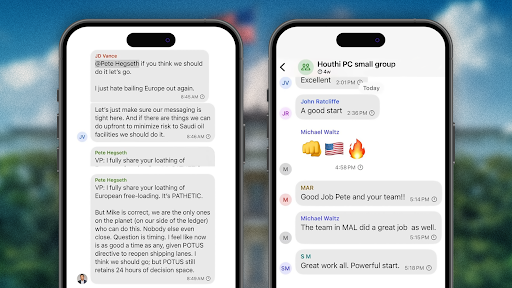On March 13th, 2024, the House of Representatives passed a bill giving ByteDance, the owners of TikTok, an ultimatum: sell TikTok within six months or have American access to the app banned (Time). Why did this happen? What is the significance of this ban? American citizens, especially teenagers, are in turmoil.
TikTok, the worldwide social media platform for short videos, formerly went by Musical.ly from its formation in April 2014. The platform was sold to ByteDance and merged into TikTok by August 2018. ByteDance is a Chinese internet technology company founded in 2012. They originally had an app called Douyin, exclusive to China, but then bought and developed TikTok to capitalize on the global technological market (Britannica). TikTok is now one of the most widely used apps in the world.
The first threat of a ban on TikTok was proposed in 2020 by former President Donald Trump, who cited “national security concerns.” However, TikTok and the US government agreed to protect American data through an alliance with the computer software company, Oracle. Oracle investigates TikTok’s algorithms and content to ensure there is no manipulation by Chinese authorities (Axios).
In June of 2022, a plan providing $1.5 billion for ensuring the security of US users’ data was implemented, called Project Texas. Shortly after, in February of 2023, the Biden Administration banned TikTok from all federal devices. That same year, Montana became the first state to sign legislation banning TikTok, but a federal judge blocked the law (Axios).
Now, in 2024, the House of Representatives voted overwhelmingly in favor of advancing legislation to force ByteDance to sell TikTok within 165 days (Axios). The vote was 352-65, and the main potential purchaser is the company Oracle. The vote will go to the Senate, but Republican Senator Kevin Cramer, representing North Dakota, claimed, “We don’t do things fast. We’re designed not to do things fast, so I would think [it will take] months” for them to make a decision on the bill (CBS News). Furthermore, President Joe Biden had told the media that he is willing to sign the bill if it comes to him.
The main reason for the TikTok ban is fear that Chinese dictators are using it to steal information from American users, which is a breach of personal privacy. Also, they fear that China is using it to expand its influence in the West and undermine the US government to rig elections. This concern is valid, as ByteDance is bound under China’s cybersecurity laws, which could require it to turn over any data it collects (The Hill). However, many argue that the bill to ban TikTok violates the First Amendment right to freedom of speech. To have a platform where anybody could share their opinions and communicate with others removed from the United States seems like an immoderate measure according to many.
Ms. Gregory, a social science teacher at Ramapo, stated that she would “personally be very disappointed if TikTok was banned. I understand the concern for security– and I don’t think regulation or changes would be a bad thing, given how much younger people use it in particular– but I think an overall ban would hurt more than it would help.”
Junior McKenna Houston agreed, saying that “teenagers will struggle to find another source of entertainment as popular as TikTok. They’re practically being deprived of an app that is a part of their everyday living.” She also said, “Knowing that many of the students at Ramapo and myself are constantly on the app, I cannot imagine it being taken away. Whether it’s watching or making videos, I use TikTok multiple times a day.”
Overall, it is clear that the United States government wants to ban TikTok due to concerns about the privacy of its citizens. However, many people, particularly those belonging to Gen Z, feel indignant that something they use for entertainment might be taken away. It is now up to the Senate to act, and we will see what happens in the future.
Works Cited (links):
https://en.wikipedia.org/wiki/Musical.ly#:~:text=ByteDance%20Ltd.,TikTok%20on%20August%202%2C%202018.
https://www.britannica.com/topic/ByteDance
https://time.com/6952889/tiktok-ban-freedom-of-speech-essay/
https://www.axios.com/2024/03/12/tiktok-ban-explain-why-china-congress
https://www.cbsnews.com/news/tiktok-ban-go-into-effect-senate/
https://www.nytimes.com/2024/03/13/technology/tiktok-ban-law-congress.html






